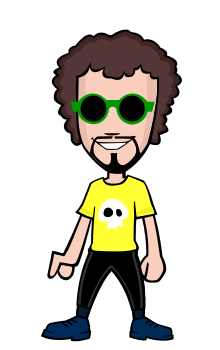Chess player and longtime world champion, who competes for Russia. At the age of 22 he became the youngest world chess champion in history. Born Garri Weinstein in Baku, Azerbaijan, in what was then the Union of Soviet Socialist Republics (USSR), he learned chess from his father, who died when Garri was seven years old. He subsequently adopted his mother’s maiden name, and his first name is now widely spelled as “Garry.”
At the age of 12 Kasparov won the Azerbaijan championship and the USSR junior championship, and at the age of 16 he won the world junior championship. In 1980, at the age of 17, he earned the International Grandmaster title. Two years later Kasparov became a candidate for the world championship, and in 1984 he earned the right to challenge the world champion, Russian Anatoly Karpov. Their first match was stopped by Florencio Campomanes of the Philippines, president of the Fédération Internationale des Échecs (FIDE), after it had lasted six months without a deciding result. In 1985 Kasparov won a match against Karpov and became the world champion. He defended his title by beating Karpov in 1986, then tied a match with him in 1987 (FIDE rules permit a champion to keep the title if the match ends in a tie). Kasparov beat Karpov again in 1990 and retained his championship.
When Karpov failed to qualify to challenge Kasparov for the world championship in 1993, Kasparov and British challenger Nigel Short broke away from the FIDE and held a championship match under the governance of the Professional Chess Association (PCA). Spurned by Kasparov, the FIDE sanctioned a championship match between Karpov and Dutch grandmaster Jan Timman. Kasparov and Karpov won their respective matches, and both claimed the title of world champion. In 1995 Kasparov retained his PCA title by defeating Indian challenger Viswanathan Anand, though the association fell apart soon afterward.
In 1996 Kasparov competed against an International Business Machines (IBM) computer named Deep Blue, the first time a world champion had competed against a computer under standard match conditions. Deep Blue, operated by a team of IBM programmers, was capable of processing millions of chess positions per second. Applying this massive computational power, a technique of artificial intelligence known as brute force, Deep Blue won the first game of the match to become the first computer to defeat a world champion under regulation time controls. Kasparov subsequently defeated Deep Blue by a score of 4 games to 2 to win the match. A year later, however, Kasparov accepted a rematch against an enhanced version of Deep Blue, capable of processing 200 million chess positions per second. Although Kasparov won the first game, he was defeated in the six-game series 3.5 games to 2.5 games. It was the first time an international grandmaster lost a series to a computer.
In November 2000 Kasparov lost his world title in a match against his former pupil, Vladimir Kramnik of Russia. The match was sponsored by a British Internet company and was not recognized by FIDE, which organized a competing world championship tournament.



